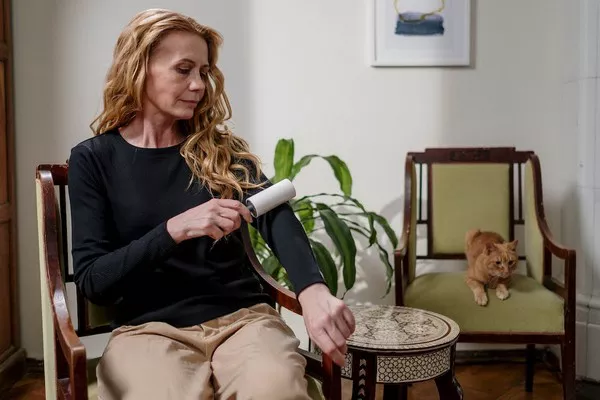As hot flashes, insomnia, and cognitive challenges disrupt the lives of around 25% of the working population in the US, a growing number of employers are stepping forward to offer enhanced support to women navigating the journey of menopause.
For the 39-million-plus working women in the United States aged 40 and beyond, the realities of perimenopause and menopause manifest in ways that inevitably intersect with their workdays. However, these symptoms often encounter limited recognition or treatment within the medical community and are frequently pushed into the shadows in professional settings.
The challenge of concealing these symptoms becomes amplified in open-plan workplaces and during meetings.
Described by a 63-year-old office administrator, “Coworkers [are] giving me weird looks because I’m sweating like a guilty perp being interrogated.”
Yet, a burgeoning group of employers acknowledges the need for change in addressing menopause and its symptoms in the workplace. As per a survey by HR consulting firm Mercer, 15% of large organizations—significantly up from a mere 4% in the previous year—state that they are currently providing or planning to provide benefits aimed at aiding women facing menopausal symptoms.
This shift holds the potential to erode the stigma associated with discussing menopause at work.
However, the subject remains delicate and personal for women to discuss openly. In recognition of this, CNN has chosen to omit the names of women interviewed for this piece, as well as those of their employers.
Navigating the Confluence of Symptoms and Work
A recent Mayo Clinic study uncovered that 13% of women reported experiencing adverse work-related outcomes due to menopause symptoms over the past year. These outcomes encompassed missed workdays, reduced hours, layoffs, dismissals, or voluntary resignations.
The researchers at Mayo Clinic observed, “The very topic of menopause has been taboo, particularly in the workplace, potentially further exacerbating the psychological burden of menopause symptoms.”
While their study is the largest of its kind, the researchers recommend a more diverse population be included in future studies, as the majority of respondents were White.
Many working women opt not to draw attention to their symptoms, fearing potential age-related biases.
A 48-year-old woman employed in digital marketing shared, “I’ll have pregnant colleagues make jokes about having ‘pregnancy brain’ when they stumble on calls, but how do I say, ‘Sorry, menopause fog’ when I’m struggling to find a word? That wouldn’t just out my health issues but more significantly, would reveal my age, which is way more terrifying.”
Addressing the Medical Gap
The challenges of managing menopausal symptoms at work might be mitigated if women could access more reliable information and care from their primary physicians.
Dr. Stephanie Faubion, Medical Director for The Menopause Society and Director of the Mayo Clinic’s Center for Women’s Health, noted, “There is a menopause management vacuum.”
A 2017 Mayo Clinic survey unveiled that only 7% of medical residents training in family medicine, internal medicine, and obstetrics and gynecology felt adequately prepared to assist women patients with managing menopause.
“Some physicians in obstetrics and gynecology might not have received comprehensive education on menopause and hormones,” Faubion highlighted.
In light of limited medical guidance, many women find themselves experimenting with self-help and seeking solutions. Yet, a significant number resign themselves to inaction, leading to untreated symptoms.
Pioneering Solutions
The Menopause Society is set to introduce a consensus recommendation next year, outlining steps that employers can take to support employees facing menopause-related challenges.
In the interim, some companies are acknowledging this issue and broadening their benefits offerings.
Organon, a healthcare company spun off from Merck in 2021, is among those acknowledging the need for change. The company, focused on women’s health and the development of products addressing various women’s health issues, introduced a Global Care Leave plan about six months ago. This plan allows employees to take up to 10 days off for self-care purposes, which encompass dealing with menopausal symptoms. The reason for taking these days does not need to be specified.
Aaron Falcione, Chief HR Officer at Organon, emphasized the company’s intention to help employees address their symptoms in ways that suit them. Falcione also anticipates that such initiatives will support women’s progression within the leadership pipeline.
“There is a relevance for leadership and career development. We are aspiring to create more women leaders. And menopause comes at a time when women are at an inflection point in their careers, [often] at the point of ascendancy into leadership roles,” he concluded.


